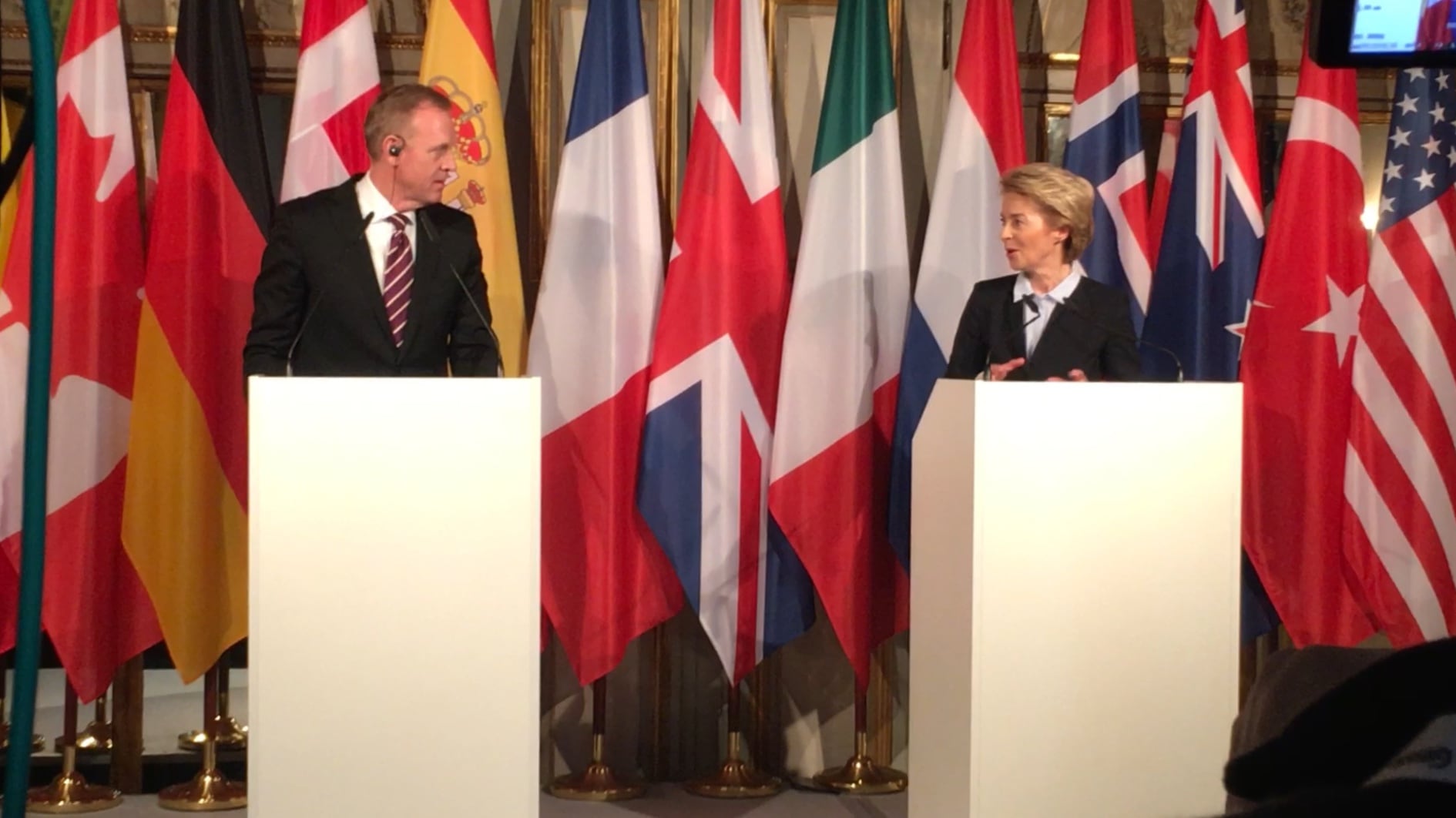MUNICH — Germany’s defense minister has urged fellow NATO leaders to speak with one voice in their approach to ongoing crises, bringing to the forefront the simmering problem of diverging ideas threatening to split the alliance from within.
“Of course, NATO is about cash, capabilities and contributions,” Ursula von der Leyen said. “But it’s also about dignity, decency and dependability. Only if we can unify those aspects can we preserve NATO’s cohesion and inner strength.”
Her comments may be meant partly to mask the fact that Germany still has no plan to reach an alliance-wide military spending goal by 2024. But they also come as fundamental disagreements between the Trump administration and Europe continue to ding the alliance’s credibility. On top of that, governments ostracized on the continent for their non-democratic leanings — like Hungary or Poland — angle to find a kindred spirit in U.S. President Donald Trump and convert that bond into security guarantees independent of NATO.
“In NATO, we are more than partners; we are allies,” the German defense chief proclaimed. “That's because every member unequivocally stands by Article 5, and because we stand by our weakest ally just as much as we stand by our strongest.”
That statement brings to mind Trump’s comments last summer questioning that NATO should come to the aid of a “tiny country” like alliance member Montenegro.
RELATED

Von der Leyen argued that fairness in NATO should extend not only to financial burden-sharing but also to political decision-making. “For all our missions, we go by the principle, ‘in together, out together.’ ” That comment speaks to the perception here that the Trump administration made plans to withdraw from Syria and reduce the U.S. troop presence in Afghanistan without consulting allies.
Veteran U.S. diplomats Douglas Lute and Nicholas Burns outlined what they termed “challenges from within” to the alliance in a new report by the Harvard Kennedy School’s Belfer Center for Science and International Affairs.
“We think NATO has to pay attention to this,” Burns told reporters in Munich, referring to growing ideological fractures within the organization. He argued that the alliance’s secretariat in Brussels should be empowered to review and, if needed, penalize undemocratic regimes, for example by withholding common alliance construction funds.
“NATO needs to take a hard look at itself,” reads the Belfer Center report. “Across twenty-five indicators or democracy rated by Freedom House, the downward trend among NATO allies over the past decade is stark.”
As for the United States, a celebration for the alliance's 70th anniversary planned in Washington in April had NATO officials in Brussels worried that Trump would use the occasion to deliver another broadside against the alliance. In the end, the event was downgraded to the level of foreign ministers.
At a time when NATO cohesion is in short supply, “it really should have been a summit of heads of government,” Burns said.
Sebastian Sprenger is associate editor for Europe at Defense News, reporting on the state of the defense market in the region, and on U.S.-Europe cooperation and multi-national investments in defense and global security. Previously he served as managing editor for Defense News. He is based in Cologne, Germany.








